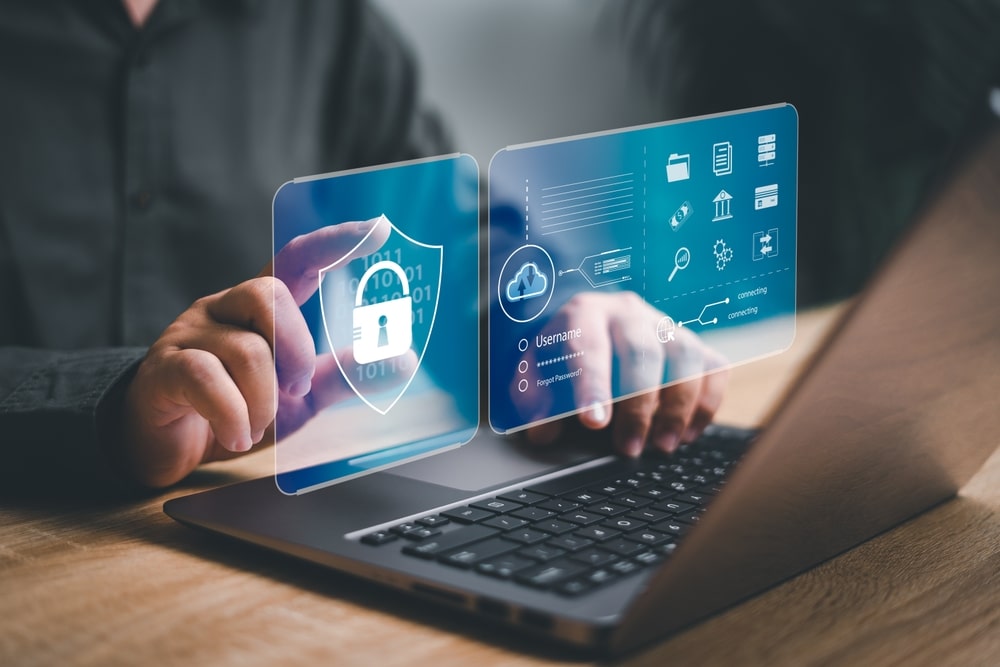Protecting Patient Data: Dental IT Solutions
Cyberattacks that specifically target dental practices are becoming more advanced and intricate, reflecting a broader trend in the cyber threat landscape. These attacks frequently aim to identify and exploit weaknesses within the information technology systems utilized by these dental offices, with the ultimate goal of gaining unauthorized access to sensitive patient information, which could include everything from personal identifiers to medical histories. Among the various tactics employed by cybercriminals, ransomware attacks, which involve the encryption of critical files and demanding payment for their release, along with phishing schemes designed to deceive practitioners into revealing confidential credentials, are particularly prevalent. The increasing complexity of these threats underscores the importance of robust cybersecurity measures for dental practices to safeguard their patient data effectively. (Source: ADA News, How to protect your dental practice from cyberattacks, by Mary Beth Versaci, March 3, 2023, https://adanews.ada.org/ada-news/2023/march/how-to-protect-your-dental-practice-from-cyberattacks/ ).
Priority Networks shares, “Cybersecurity for dental practices is not solely about deploying technology; it involves a deep understanding of the changing threat landscape. As cyberattacks grow more sophisticated, relying on basic defenses like firewalls and antivirus software is insufficient. Practices must implement a comprehensive cybersecurity strategy that includes ongoing education for staff, regular updates to security policies, and frequent system audits to identify and close vulnerabilities. Dental IT services play a crucial role by providing the necessary expertise to manage these tasks, ensuring that dental practices stay protected against evolving threats.
Additionally, dental IT support ensures that cybersecurity protocols are implemented effectively and continually monitored and improved. This forward-thinking approach is key to staying ahead of the constantly shifting tactics used by cybercriminals.”
Be Wary Of Email Attachments
Cybercriminals frequently use email attachments as a primary method for introducing malware. Opening a seemingly innocent attachment from an unverified source can initiate an attack, compromising patient records and financial information.
Priority Networks highlights, “It’s vital to cultivate a culture of caution when handling emails, particularly attachments. Even routine-looking documents can harbor dangerous malware. Encouraging staff to inspect sender addresses, avoid opening unexpected attachments, and employ sandboxing technology for email screening can dramatically reduce risks. This cautious approach, along with reinforcing cybersecurity protocols, provides a first line of defense against such attacks.”
Train Your Team On Basic Data Security
Human error remains a top vulnerability in cybersecurity. Appropriate education enables staff to identify and react to possible risks, minimizing the chances of data violations.
Priority Networks comments, “Training should go beyond a one-time session—regular updates and simulations help reinforce the importance of vigilance. Dental practices should create a robust security culture where all staff members, from front office workers to clinicians, understand their role in data protection. Real-world phishing simulations and continuous learning initiatives help prepare teams to spot and respond to suspicious activities effectively.”
Protect Sensitive Data On Business And Personal Computers
Devices containing sensitive patient information, whether in the office or used remotely, must be encrypted and secured to prevent unauthorized access. Dental practices frequently handle protected health information (PHI), which must be safeguarded under certain regulations.
Priority Networks comments, “It’s essential to implement full-disk encryption for all devices handling sensitive data. Encrypting files ensures that even if a device is stolen or compromised, unauthorized individuals cannot access the data without the decryption key. Additionally, separating personal and business use on devices and restricting data access based on roles within the practice can further mitigate risk.”
Regularly Backup Your Data And Store An Encrypted Copy Off-Site
Ransomware attacks often encrypt a practice’s data, rendering it inaccessible unless a ransom is paid. Regular data backups, stored securely off-site and encrypted, provide a vital fallback option.
Priority Networks shares, “Regular data backups are essential. Even the most advanced systems can fall victim to sophisticated attacks, and having an encrypted, off-site backup ensures that a dental practice can recover swiftly without paying a ransom. Backups should be automatic and include both patient data and system configurations to enable a comprehensive recovery. Furthermore, these backups must be regularly tested to ensure their integrity and effectiveness.”
Maintain Your Cyber Defenses
Cyber defenses, such as antivirus software, firewalls, and network monitoring tools, must be maintained and regularly updated to combat the latest cyber threats. Cybercriminals continuously refine their methods, making constant vigilance essential.
Priority Networks comments, “It’s critical to keep all cybersecurity tools up to date, as new vulnerabilities are discovered regularly. Installing patches and updates promptly can prevent attackers from exploiting known weaknesses. Practices should also conduct regular vulnerability assessments to ensure that defenses are not only current but also comprehensive, covering all potential entry points. The approach to cybersecurity should be continuous, not just a single implementation.”
Cybersecurity is vital to protecting dental practices from increasingly sophisticated threats. Implementing comprehensive strategies that include staff training, data encryption, regular backups, and maintaining cyber defenses is crucial to protecting sensitive patient information.
Priority Networks concludes, “In today’s landscape, cybersecurity is a shared responsibility across the entire dental team. By adopting a layered approach that addresses both technological defenses and human factors, dental practices can significantly reduce their vulnerability to cyberattacks. Continuous education, robust data management, and the vigilant maintenance of IT systems form the foundation of a resilient, secure practice.”




